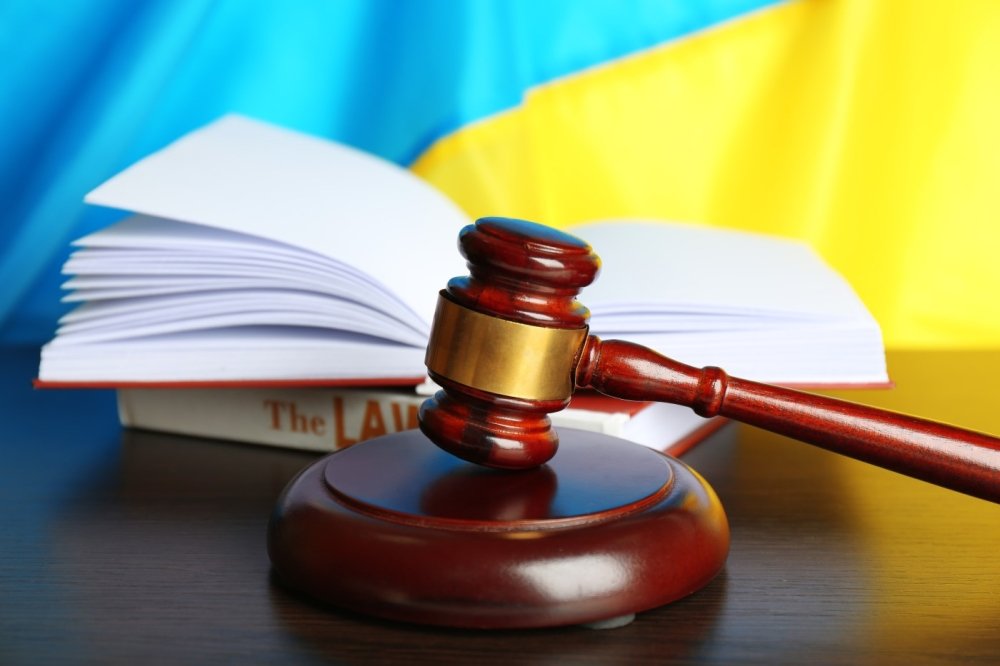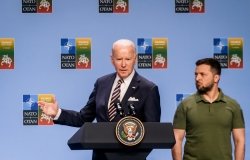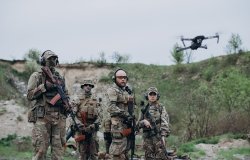
A blog of the Kennan Institute
Military Justice Reform in Ukraine Is Urgently Needed
An independent and comprehensive justice system is the bedrock of any democracy, emblematic of the rule of law and public trust in government. A country's judicial efficacy is a measure of its standing in international relations, influencing its ability to ensure national security as well as the integrity of the alliances it is part of. For Ukraine, currently engaged in a tumultuous conflict and aspiring for NATO integration, bringing its military justice system in line with international standards transcends legal necessity and becomes a strategic imperative.
Current State and Challenges
The historical backdrop of the Ukrainian judiciary is marked by repeated reform efforts of varying success and compromised by corruption and inefficiency. This becomes especially relevant in the context of the ongoing war. It is not surprising that the majority of corruption cases revolve around armament and aid supplies.
A more recent source of discontent is the controversial drafts of conscription legislation, which have sparked widespread debate and criticism from both officials and the public, largely because potential draftees fear losing their rights and facing injustice as a result of the lawless behavior of conscription officers and law enforcement agencies.
War usually increases executive power and reduces personal freedoms, making the judiciary as the main protector of individual rights.
Analyzing public support for military operations is pivotal for policymakers. Recent research has highlighted the lack of data from non-Western and minor powers (NWMP), which have been principal actors in post-World War II conflicts. If similar surveys were conducted in Ukraine, it is likely that a major deterrent to conscription would be the uncertainty of the environment, particularly the absence of law. Although public data of this nature are unavailable, it is reasonable to hypothesize that a credible military justice system would positively address this issue.
Ukraine’s Military Justice System Today
The military justice system in Ukraine has often been viewed as anachronistic. Key components, such as military courts and the military prosecutor's institute, were systematically dismantled in 2010 and 2019, respectively. Despite these changes, the military justice framework has been retained and now consists of three main bodies.
The first is the Military Law Enforcement Service (MLES) of the Armed Forces of Ukraine (AFU), which essentially functions as a military police service with significantly reduced capabilities. The MLES cannot investigate crimes. Its functions are limited to initiating investigations, supporting legal enforcement activities, and enforcing administrative punishments and judgments.
Second is the Special Defense Prosecutor’s Office, founded as a department in May 2023 by Andriy Kostin, who exploited a legislative loophole regarding prosecutors that allows the prosecutor general to establish special departments within the office.
Finally, the Code of Internal Service of the AFU outlines the expansive role of the deputy brigade commander on legal matters, tasked with addressing the wide range of remaining legal issues.
It is notable that the National Anti-Corruption Bureau, the Security Service, and the National Police have retained their jurisdiction over the investigation of certain crimes. This leads to jurisdictional overlap and additional procedural issues, ultimately resulting in justice failures.
Russia’s full-scale invasion exposed the deficiencies of this system. Reports of human rights violations within the military have become a toxic issue for the Ukrainian government and highlighted the issue. The absence of a structured military justice system undermines not only the discipline and efficacy of the armed forces but also public trust in the military as an institution. It also gets in the way of Ukraine realizing its NATO aspirations.
Legislative Initiatives and Analysis
Recent legislative efforts, particularly the Draft Law on the Military Justice of Ukraine (MJU), demonstrate a recognition of the problem. However, the draft law falls short in several key areas. It lacks clarity in defining the roles and responsibilities of the proposed MJU, especially concerning its advisory capacity in operational and international law. Moreover, the draft law does not provide for credible oversight mechanisms or ethical standards.
This gap is critical, as a military justice system devoid of robust oversight and ethical governance is susceptible to the same pitfalls of corruption and inefficiency that have historically plagued Ukraine's judiciary. Additionally, the draft's silence on international cooperation limits its potential to align with common, established standards, a crucial aspect for Ukraine's defense strategy and international relations.
Among other initiatives we can mention the efforts of the Ministry of Defense to develop military police, yet the details of this initiative are unknown.
JAG Corps Model as a Solution
To address these gaps, Ukraine might consider established military justice models such as the U.S. Judge Advocate General's Corps (JAG Corps), the legal branch of each uniformed service. The JAG model offers a comprehensive approach to military legal services, encompassing a range of functions essential for a modern military force. These functions include providing advice on administrative and operational law and guidance for commanders on the law of war, interpreting rules of engagement, handling government contracts, and providing legal assistance to service members, including aid in personal legal matters and ensuring their rights are protected.
Adopting a similar model would require Ukraine to address several key areas. It would entail, first, establishing clear roles and functions for military legal officers across various fields of practice, including litigation, general advisory, commercial law, international relations, and operational law. Second, the model must incorporate a framework for continuous legal education and training for both the troops and the officers of the proposed MJU. Third, integrating a model akin to the JAG into both the existing military structure and the procedural rules would require meticulous legal drafting.
Why It Matters
Reforming Ukraine's military justice system can and should address both immediate and long-term needs. Enhancing the draft law to clearly articulate the functions and authority of the MJU, combined with essential Rules of Procedures and establishing credible oversight mechanisms and ethical standards, is crucial for maintaining integrity and public trust in the military justice system.
Ukraine might also seek international guidance in this regard from NATO-aligned countries to better align its military justice practices with international standards, implementing a model akin to the JAG Corps. This would not only ensure that Ukraine's military justice system was equipped to handle the complexities of modern military operations while upholding the highest standards of legal and ethical conduct, it would also reinforce Ukraine’s commitment to the rule of law and democratic values.
Reforming the military justice system in Ukraine is an urgent matter and a strategic imperative that demands immediate attention and action, of a piece with Ukraine's broader goals of democratic reform.
The opinions expressed in this article are those solely of the author and do not reflect the views of the Kennan Institute
See our newest content first.
Subscribe to receive the latest analysis from Focus Ukraine
About the Author

Armenak Ohanesian

Kennan Institute
The Kennan Institute is the premier US center for advanced research on Russia and Eurasia and the oldest and largest regional program at the Woodrow Wilson International Center for Scholars. The Kennan Institute is committed to improving American understanding of Russia, Ukraine, Central Asia, the Caucasus, and the surrounding region though research and exchange. Read more











